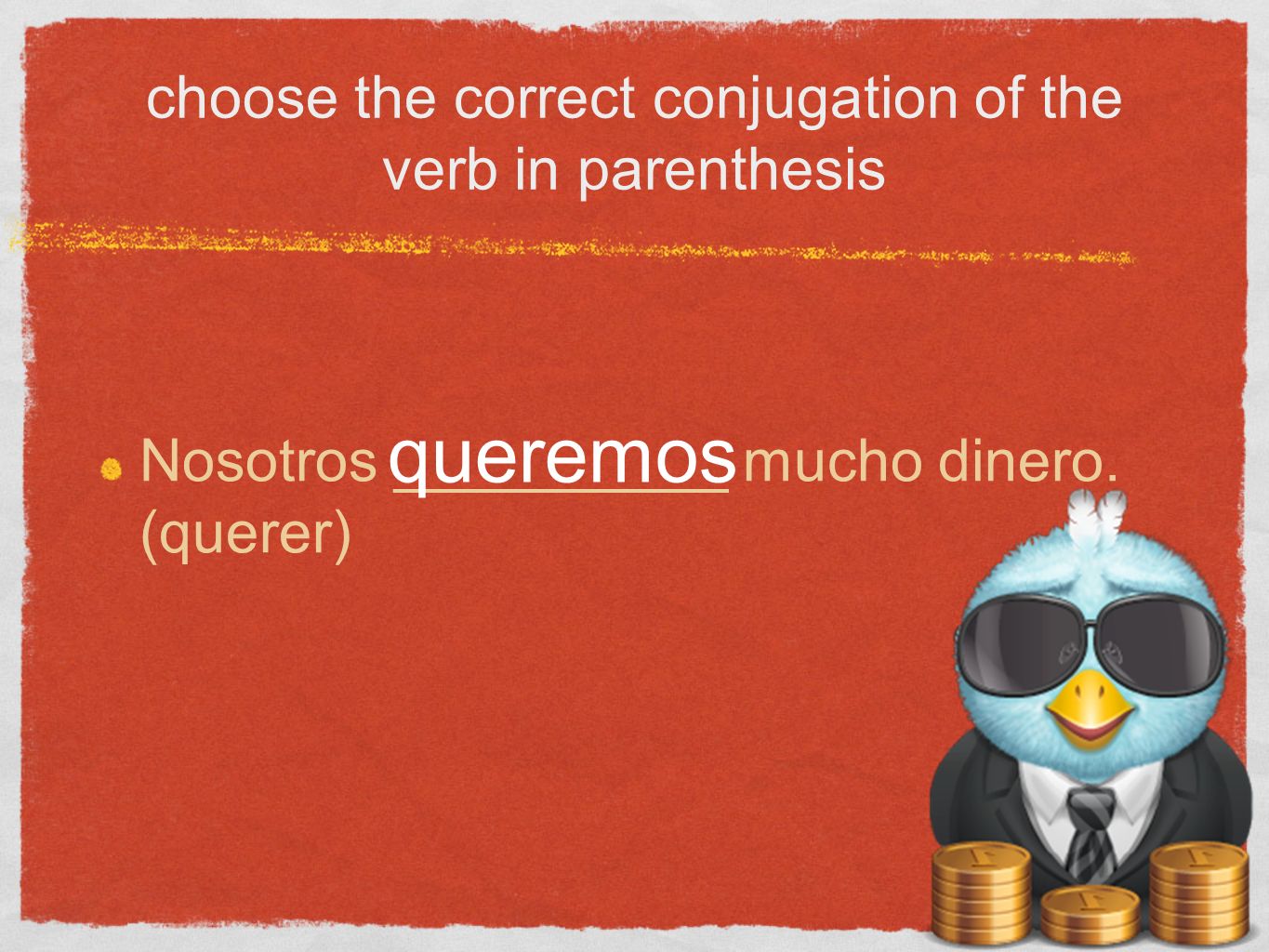Let's explore a common grammar question in Spanish: "Nosotros tendrian mucho dinero." Is it correct?
The short answer is no. This phrase has a grammatical error.
Understanding the Parts
To understand why, let's break down the sentence into its core components. We will consider each part of the sentence.
Nosotros is a Spanish pronoun. It means "we."
Tendrian is a verb form. It's related to the verb tener, which means "to have."
Mucho dinero translates to "a lot of money." Mucho means "much" or "a lot." Dinero means "money."
The Verb "Tener"
The verb tener is irregular in Spanish. This means that it doesn't follow the regular conjugation patterns. Understanding its different forms is crucial.
Let's look at the present tense conjugation: yo tengo (I have), tú tienes (you have), él/ella/usted tiene (he/she/you formal have), nosotros tenemos (we have), vosotros tenéis (you all have - Spain), ellos/ellas/ustedes tienen (they/you all have).
Now, let's look at the conditional tense. This tense expresses what someone *would* have. For tener, the conditional is: yo tendría (I would have), tú tendrías (you would have), él/ella/usted tendría (he/she/you formal would have), nosotros tendríamos (we would have), vosotros tendríais (you all would have - Spain), ellos/ellas/ustedes tendrían (they/you all would have).
The Error and the Correct Form
The problem with "Nosotros tendrian mucho dinero" is the verb conjugation. Tendrian is the ellos/ellas/ustedes (they/you all) form of the conditional of tener. It doesn't match nosotros (we).
The correct form is: Nosotros tendríamos mucho dinero. This translates to "We would have a lot of money." See the difference in the verb ending?
Why Conditional Tense?
The conditional tense is used to express hypothetical situations. It expresses what *would* happen under certain circumstances. Consider using conditional tense to talk about hypothetical scenarios.
For example: "Si ganáramos la lotería, nosotros tendríamos mucho dinero." (If we won the lottery, we would have a lot of money.).
Another Example: "Si trabajáramos más horas, nosotros tendríamos más dinero." (If we worked more hours, we would have more money.).
Examples in Different Contexts
Let's consider some more examples to reinforce the concept. Consider the following scenarios.
"Si estudiáramos todos los días, nosotros tendríamos buenas notas." (If we studied every day, we would have good grades.)
"Si viviéramos en una ciudad grande, nosotros tendríamos más oportunidades." (If we lived in a big city, we would have more opportunities.)
"Si fuéramos más organizados, nosotros tendríamos más tiempo libre." (If we were more organized, we would have more free time.)
Common Mistakes
A common mistake is confusing the conditional tense with other tenses. Sometimes students use the future tense incorrectly. It is important to understand tenses when writing in Spanish.
For example, avoid saying: "Nosotros tendremos mucho dinero" (We will have a lot of money) when you mean "We would have a lot of money." The first example means you have the money, the second one means that hypothetically you would have a lot of money.
Another mistake is using the wrong verb ending. Remember to pay attention to the subject pronoun. Always match the subject pronoun with the correct verb form.
Practice Exercises
Fill in the blank with the correct form of tener in the conditional tense:
1. Si ganáramos un premio, nosotros _________ la oportunidad de viajar.
2. Si fuéramos famosos, nosotros _________ muchos admiradores.
3. Si pudiéramos volar, nosotros _________ una vista increíble.
Answers:
1. tendríamos
2. tendríamos
3. tendríamos
Key Takeaways
Nosotros tendríamos is the correct form for "we would have." The word tendrian is a conjugation of "tener" that does not correspond to the pronoun "nosotros".
The conditional tense expresses hypothetical situations. Pay close attention to verb conjugations. Consistent practice is key to mastering verb tenses in Spanish.
Remember to always match the verb form to the correct subject. Don't be afraid to make mistakes. That is part of the learning process. Keep practicing. With time you will master the conditional tense.


